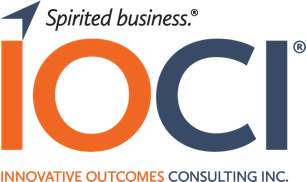
In times of crisis
In 1982, seven people in Chicago died from taking cyanide-laced capsules of Extra-Strength Tylenol. Many predicted the Tylenol brand, which at the time represented about 17 percent of Johnson & Johnson’s (J&J’s) net income, wouldn’t recover.
Not only did the brand recover, it has thrived since the incident.
What steps did J&J take?
The answer lies in whether an organization is clear on what they stand for, how they view their duty to those they serve and how grounded they are in good values and ethics. As we dig deeper into the J&J example, we learn that the firm’s values are inextricably linked to the simple yet powerful credo created by Robert Wood Johnson, a member of the company’s founding family, in 1943. The company’s leadership felt so strongly about this credo that they had it etched in stone on a wall outside of their corporate headquarters.
The credo carefully outlines their guiding principles in order of priority, and is a great example for other firms to review and reflect on as they consider their own values. To paraphrase the credo, the principles focus on the following:
Principle one – we put those we serve first (including doctors, nurses, patients, mothers, fathers and all others who use J&J’s products) and ensure high quality at a reasonable cost.
Principle two – we are responsible to our employees, must consider them as individuals, respect their dignity and recognize their merit, and provide them with a sense of job security as well as a safe environment in which to work. This principle goes on to recognize the firm’s role in enabling employees to fulfill family responsibilities and feel safe voicing suggestions and concerns among other noble responsibilities for leadership to do in support of employees.
Principle three – we are responsible to our communities in which we live and work. This means we must be good citizens by supporting good works and charities, and must encourage civic improvements to promote better health, and education.
Principle four – our final responsibility is to shareholders to run our firm in a sound, efficient and sustainable manner that produces a fair return for investors.
When reading J&J’s credo, you quickly notice that the weight of it is on people, not profits. It very clearly establishes the firm’s responsibilities to customers, employees, communities and shareholders. So, it’s not surprising that during the crisis, the firm immediately removed all Tylenol products from store shelves to mitigate the health risk to the public,forfeiting millions of dollars in the process.
In making this decision, J&J leadership didn’t hesitate; they already knew the right decision. They were clear on what they believed, what they stood for, and that people – their customers – came first.

How does this compare to companies today?
Contrast the J&J incident with the current Facebook data breach crisis when days went by without comment from the Facebook’s leadership. In the J&J case, their swift action to protect the public at great cost to the firm showed their hearts and how leadership viewed its responsibility to protect human health and safety.
The Facebook crisis illustrates a trend we’re seeing more and more in business. Companies are easily drawn off course, away from the founding principles that initially guided the firm. Why? Fuzzy values.
Imagine how things might have gone differently if Facebook had swiftly taken a values-based approach that reflected their duty to their users. What if they asked the hard questions like:
- What are our core values?
- And, whose interests are we intent on serving?
In fact, Facebook’s reaction to the data breach has raised many questions that all firms can benefit from considering:
- What about the actions or inactions of Facebook caused the public to trust or mistrust them?
- How does Facebook demonstrate (or not) that they are clear on what they stand for, how they view their duty to those they serve and how grounded they are in good values and ethics?
- What impressions did the silence that followed Facebook’s awareness of the data breach create among the public?
- What thoughts and actions might be important for you and your firm to consider as you determine whether you have well-defined guiding principles that enable you to act quickly, deliberately and congruent with your principles in times of crisis?
IOCI believes that decision-making during crisis becomes easier when leaders and organizations are grounded in their values, have well defined ethical boundaries and know whose interests they serve.
Facebook isn’t alone in losing its way. Others, think United, Experian and Uber, have also recently left many with the impression that their values may be shifting away from what’s best for clients.
But as Ama Marston points out for CNN Money, “Leaders would do well to see these crises not as storms merely to be weathered, but as moments for transformative change leaders who most successfully navigate crises are those who embrace uncertainty and convert adversity and complex business challenges into opportunities for innovation and progress. Their form of resilience is transformative – strategic, purposeful and focused on the future.”
With this in mind, take a moment to reflect on what you stand for, who you serve and how you lead with clear values. Then, write a credo or a promise to your customers, employees and communities so they know what they can expect from you.
Prefer to push this exercise off into the future? After all, maybe it’s smooth sailing for you right now.
While straying from your core values isn’t necessarily an eventuality, and neither is damaging your customers, it’s worth taking time now to reflect on the questions above. That investment of time, along with pledging to actively engage should you or your company’s leadership make a mistake, are worthwhile efforts.
As Marston reminds: “Avoidant behavior allows for challenges to snowball into crises, for employees to become disgruntled and for customers and the public to lose trust.”
Thought leadership on confronting crisis from a strong values base is just one way IOCI helps clients navigate through difficult times. Find out how else we can help on our “What We Do” page.
Marialane Schultz is the founder of IOCI. She helps individuals and organizations perform at their best, do meaningful work and be impactful through customized coaching and consulting engagements.

